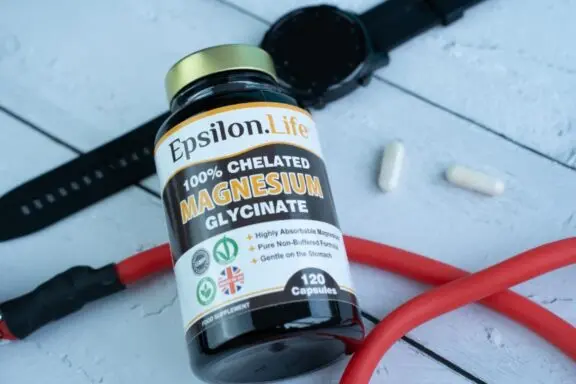Introduction
Healthy bones provide us with a strong and supportive framework for our bodies. Our skeletal structure, made up mostly of bone, is what protects our organs and holds everything in place. Without a healthy bone structure, we become susceptible to falls and injuries.
You’ve probably heard much about calcium and its importance for strong bones. But what else contributes to good bone health? Read on to learn more about the factors influencing bone density and ways to build and maintain healthy bones.
What Is Good Bone Health and Why It Matters
Your bones are constantly going through a process of breakdown and regeneration. In order for bone health to be considered good, your bones need to be strong and have an adequate amount of bone mass. Your age, sex, genetics, and lifestyle determine this.
There are many reasons why good bone health matters. First and foremost, bones are essential for movement. They protect our organs, and they play a role in regulating our hormones. Also, strong bones help reduce the risk of fractures as we age.
If you are worried about your skeletal health or want to strengthen it, there are many things you can do. Diet and lifestyle changes are excellent places to start. You can also take supplements to help promote bone health.
Age and Bone Density: Why Older Adults Need to Pay Attention
As you get older, your bones start to lose density, making them more susceptible to fractures and other injuries. This condition is called osteoporosis, which every older adult should be aware of and take steps to prevent.
Osteoporosis is a condition characterised by weakened bones that become susceptible to fractures. Although anyone can develop osteoporosis, it is four times more common in women. It affects mainly the spine, hips and wrists.
One of the main factors that contribute to osteoporosis is menopause. When a woman goes through menopause, her ovaries stop producing oestrogen, which is responsible for keeping bones healthy and strong. Without oestrogen, bones can start to weaken and become less dense.
You can do things to keep your bones healthy as you age. Diet and lifestyle changes are an excellent place to start, as are supplements like vitamin D. It’s also important to stay active and keep your muscles strong, as this can help protect your bones.
Improve Bone Strength With Diet and Nutrients
You can improve your bone health by changing your diet and lifestyle. For starters, ensure you’re getting enough calcium and vitamin D. These nutrients are essential for keeping bones strong and healthy.
You can find calcium in dairy products, leafy green vegetables, fortified foods and supplements. Vitamin D can be found in fatty fish, eggs, fortified foods and supplements.
Another important nutrient for bone health is magnesium. You can find magnesium in leafy green vegetables, nuts, seeds, legumes and whole grains.
Lifestyle Changes That Help Maintain Healthy Bones
Making a few lifestyle changes can go a long way in helping to maintain healthy bones.
Exercise helps to improve bone density and strength, which can help reduce your risk of fractures later in life. For starters, try to get at least 20 minutes of moderate-intensity physical activity daily. Aim to do 50-60 minutes on most days of the week. This should include weight-bearing exercises like jogging, walking, and dancing, as these are key for helping build strong bones. Exercises with elastic bands are also a great choice (and my favourite, if I might add).
And don’t forget about stretching! Through stretching and flexibility exercises like yoga, the tissues surrounding your bones become more flexible and better able to handle the trauma from sudden movements. This is especially important for older adults whose body structure has changed due to age and bone density loss.
Other lifestyle changes that can help maintain bone health include avoiding smoking and limiting alcohol intake. Smoking increases the risk of osteoporosis and fractures by robbing our bodies of essential vitamins and minerals. Alcohol also interferes with vitamin absorption and can lead to calcium loss.
In addition, to exercise and quitting unhealthy habits, make sure you’re getting plenty of restful sleep each night—this can help promote better bone health and overall wellness.
The Issue With Calcium
The mineral calcium plays a vital role in the formation and maintenance of our bones. This has led to many people taking excessive calcium supplements to keep their bones healthy. However, this may lead to other health issues.
Even a good thing, when taken in excess, can be harmful. This is especially true of calcium.
Excess calcium consumption can lead to hypercalcaemia and have serious side effects such as an irregular heartbeat, the formation of kidney stones, and even an increased risk of heart disease. Hypercalcemia is a condition in which the calcium level in your blood is above normal and starts interfering with the functioning of your organs.
Excess calcium especially affects the kidneys, which will have to work harder to filter it, and can also affect the brain and heart’s functions. Calcium deposits in the arteries (atherosclerosis) and blood elevate the risk of coronary artery calcification, heart attacks and strokes.
To ensure long-lasting bone health, you need calcium and an array of other nutrients to regulate and optimise its performance in the body. For example, Vitamin D plays a vital role in calcium absorption. Other essential nutrients are just as necessary for bone health; we will examine these below.
Supplements for Bone Strength and Health
No matter your age, you can benefit from taking certain supplements to help support bone strength and health.
Calcium
Your body doesn’t naturally produce calcium, so you must get it through your diet or supplementation. Our bodies need calcium for the development of healthy bones, as well as nails and teeth. The recommended maximum dosage is 2,500 mg a day for adults 19 to 50 and 2,000 mg a day over the age of 50.
Aside from calcium, other minerals and vitamins are essential for healthy bones. This is because they affect how calcium works in the body.
Magnesium
Magnesium determines where calcium is deposited in your body; hence it also plays a role in bone density. This may lower the risk of osteoporosis.
For optimum bone health, add magnesium to your diet with our tummy-friendly, activated form of Chelated Magnesium Bisglycinate.
Omega-3 Fatty Acids
Studies have shown that Omega-3 fatty acids promote new bone formation and help prevent bone loss.
Research has proven that Omega-3 polyunsaturated fatty acids decrease bone loss and help with new bone growth, but they also decrease the risk of osteoporosis.
Boost your bone health with the Omega-3 fatty acids found in our Omega-3 DHA soft gels.
Vitamin D
Vitamin D helps your body to absorb calcium. Our best source of vitamin D is the sun, but not all of us are exposed to enough sunshine to get enough vitamin D.
Excessive sunlight is also not recommended, as it increases exposure to harmful UV rays. Therefore, vitamin D supplementation is the more accessible and safer route.
The most natural form is found in Vitamin D3 supplements. Vitamin D3 is the type of Vitamin D your skin produces when exposed to sunlight. It has become known as the ‘sunshine vitamin’ for this reason.
Our maximum potency vitamin D3 is the most potent Vitamin D3 supplement available.
The Importance Of Vitamin K2
Vitamin K2 prevents the accumulation of calcium in your brain and other soft tissues. By keeping calcium in the bones, it prevents calcium build-up in our blood circulation (which could land up in places like our brain and our arteries).
Vitamin K2 activates the protein osteocalcin, which helps calcium bind to our bones, lowering these risks. In our dedicated article, you can learn more about the benefits of vitamin D3 and K2.
Conclusion
So, what can you do to improve your bone health and keep your bones strong as you age? Plenty! Here are some tips:
- Eat a balanced diet, including plenty of calcium and vitamin D.
- Exercise regularly.
- Make lifestyle changes, such as quitting smoking and reducing alcohol intake.
- Take supplements, such as vitamin D3 and vitamin K2.
- Get adequate sleep.
- Protect your bones from injury.
- See your doctor regularly for check-ups.
These tips should help you build healthy bones and keep them strong well into old age. It is never too late to start taking care of your bones. Even if you are already experiencing bone loss, there are things you can do to prevent further deterioration and even improve your bone health. So don’t wait; start making changes today to keep your bones healthy and strong for years to come.
If you’re searching for a high-quality supplement to help support your bones, look at our range of products. Our Vitamin D3 K2 Zinc with MCT Oil and Boron is designed to maximise the absorption of vitamin D, our Vegan 100% Chelated Magnesium Glycinate is one of the purest and most high-quality magnesium supplements on the market, and our Vegan Omega 3 DHA is the pollutant-free plant-based alternative to fish oil.



